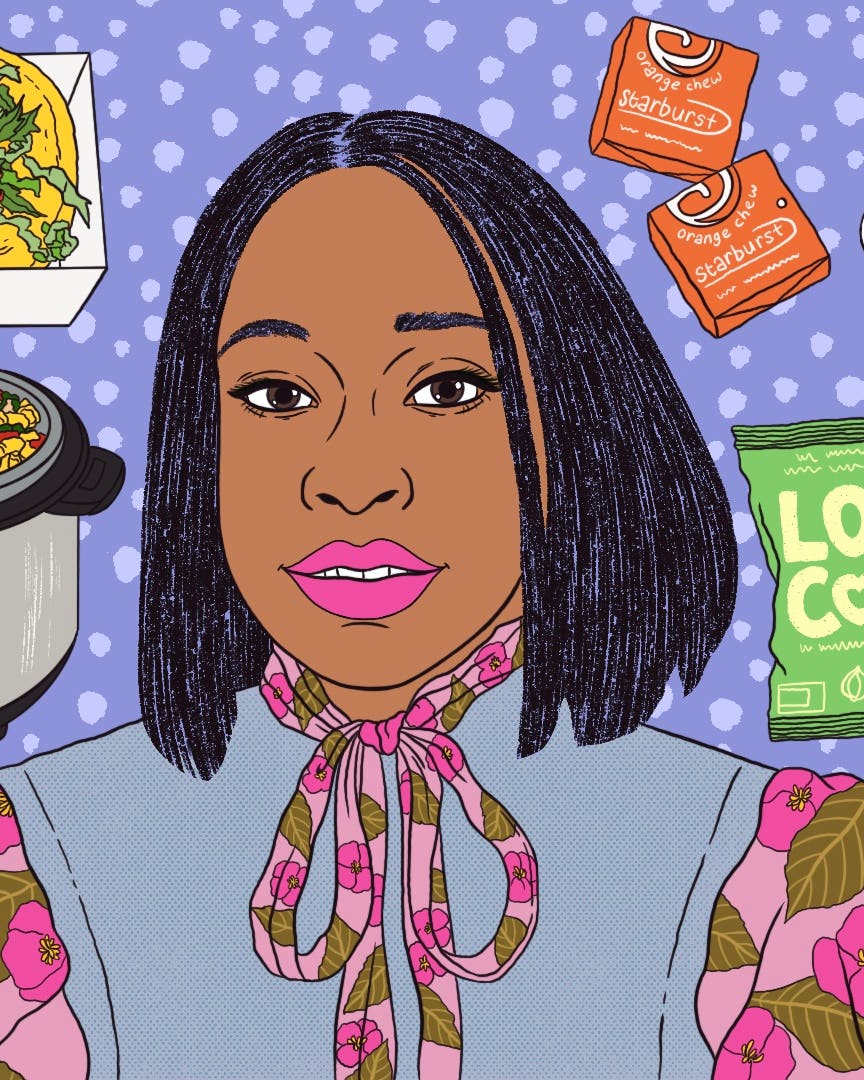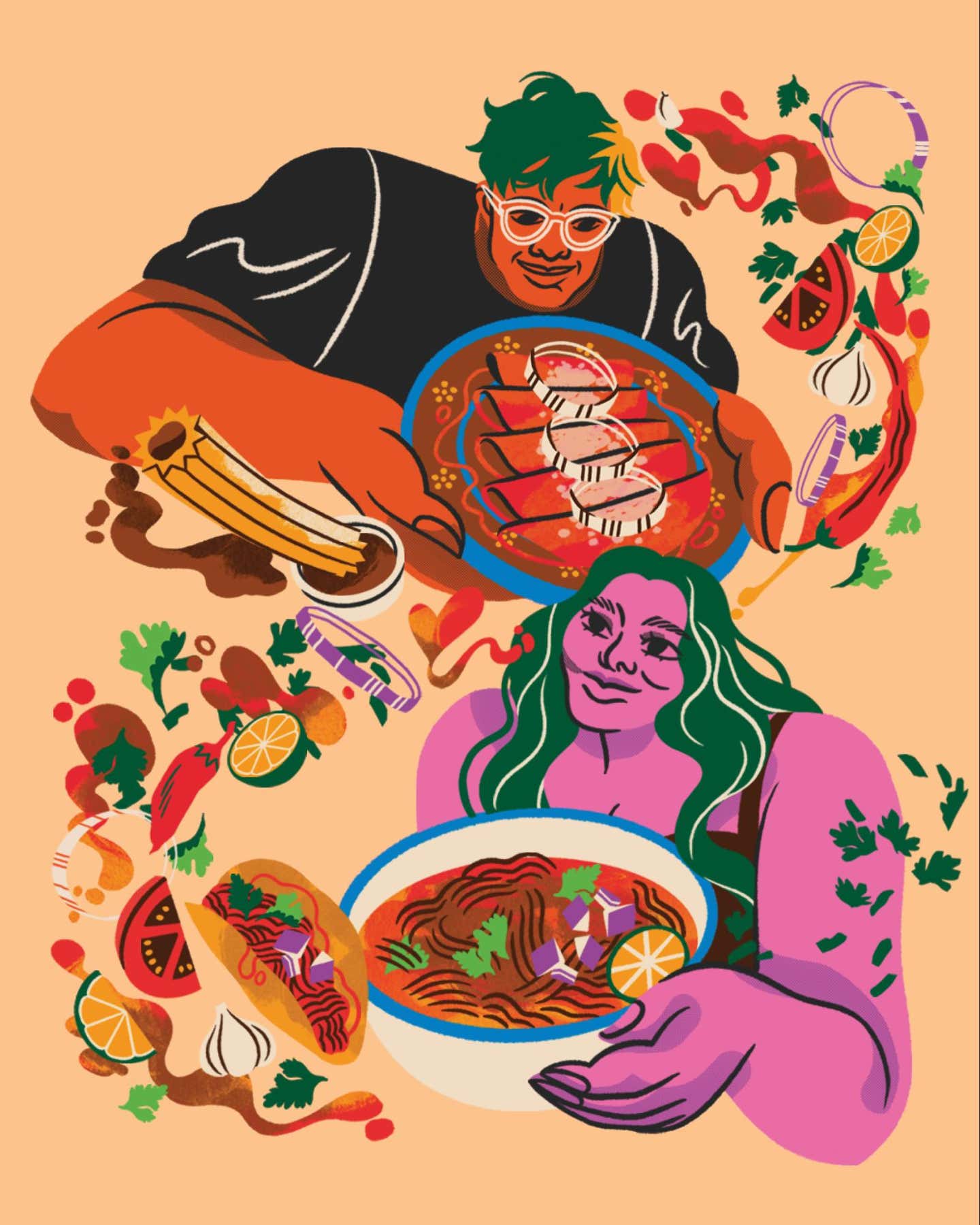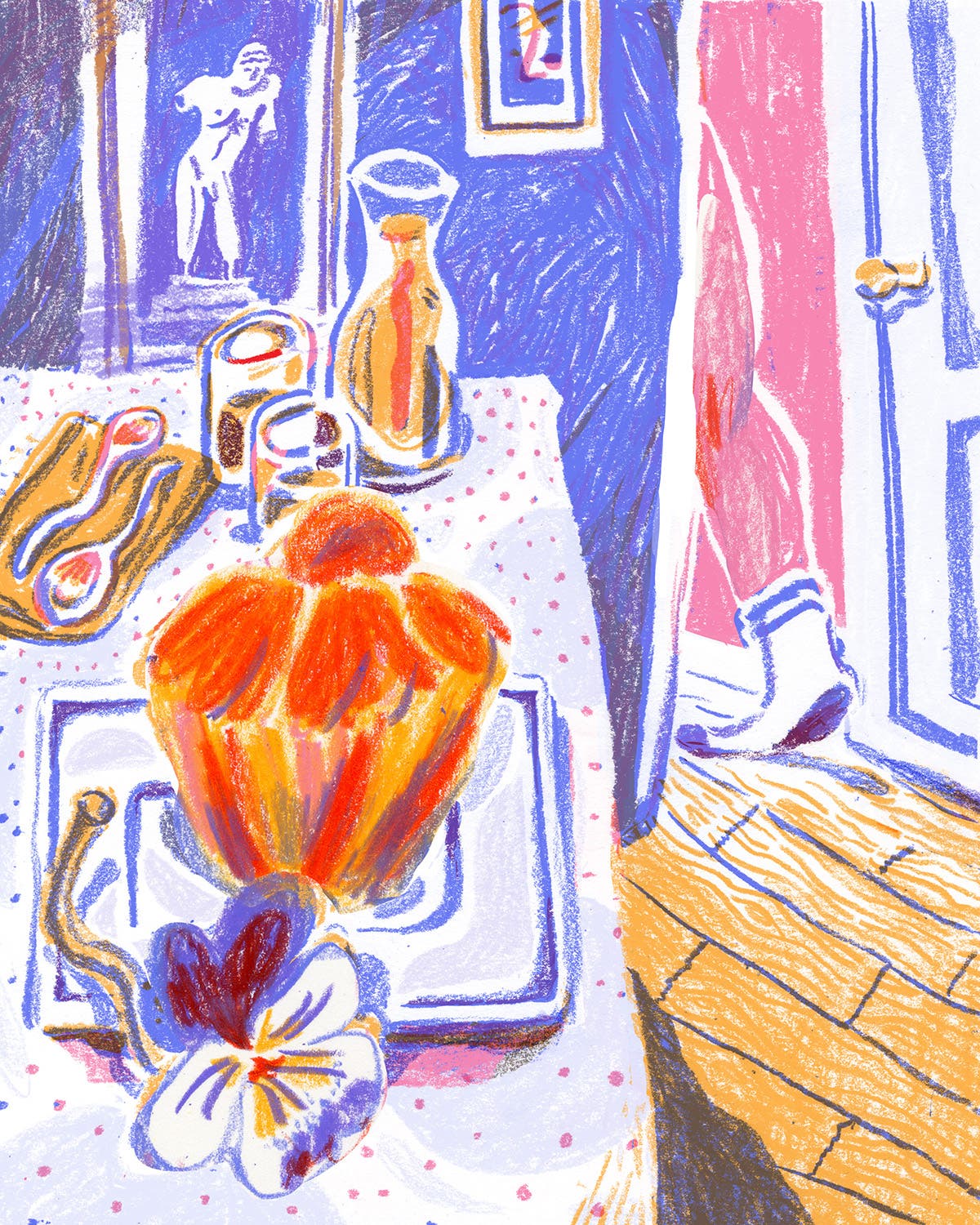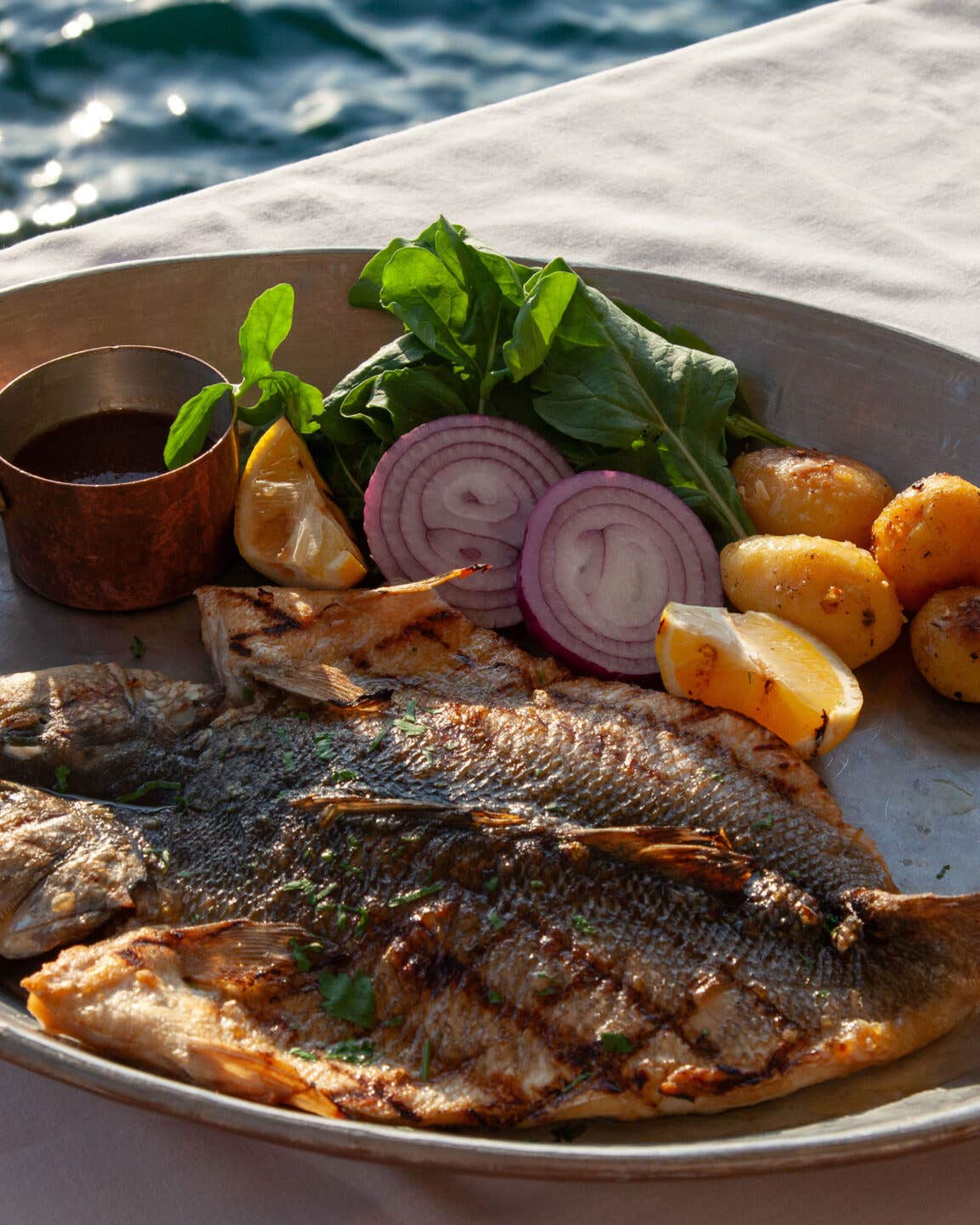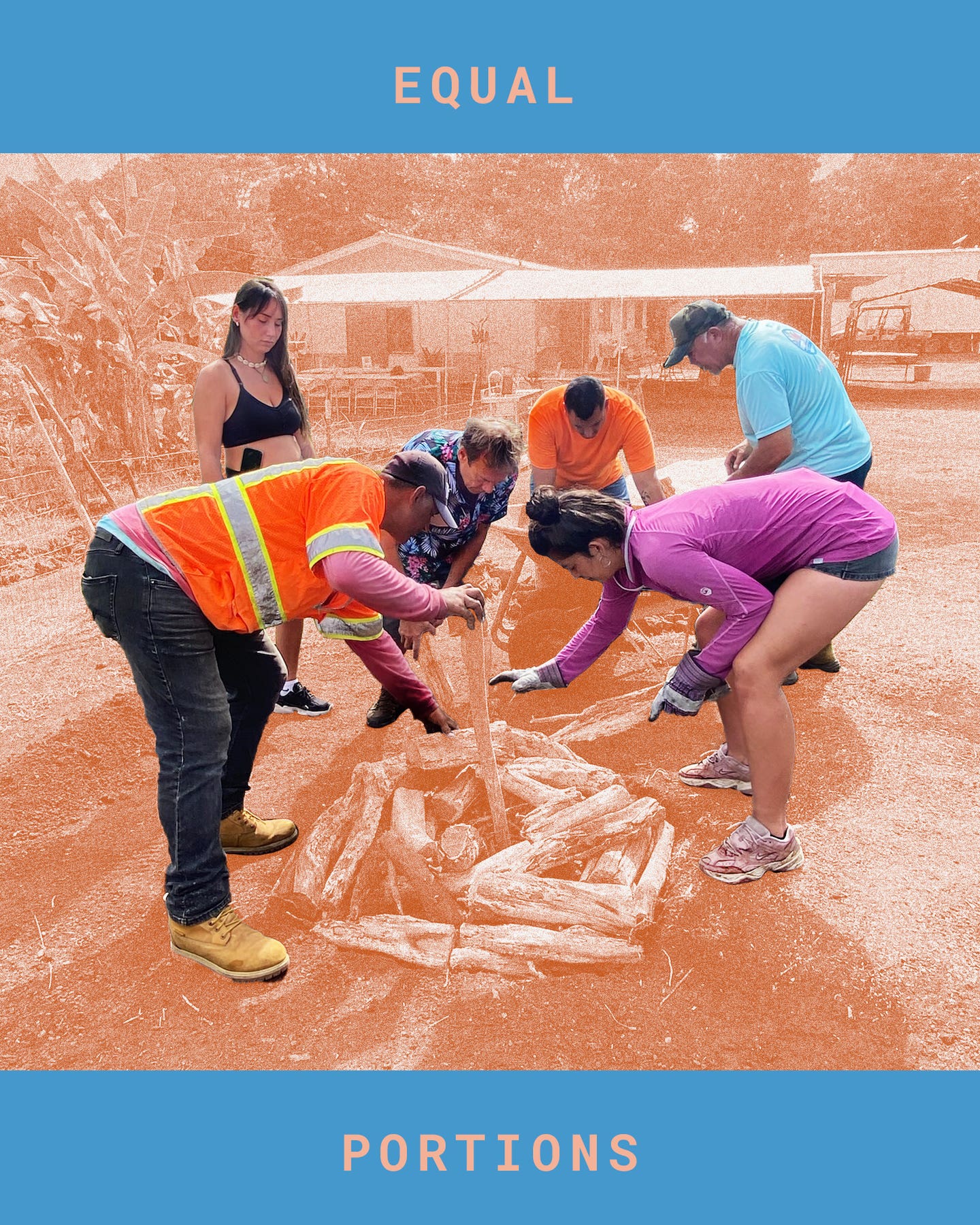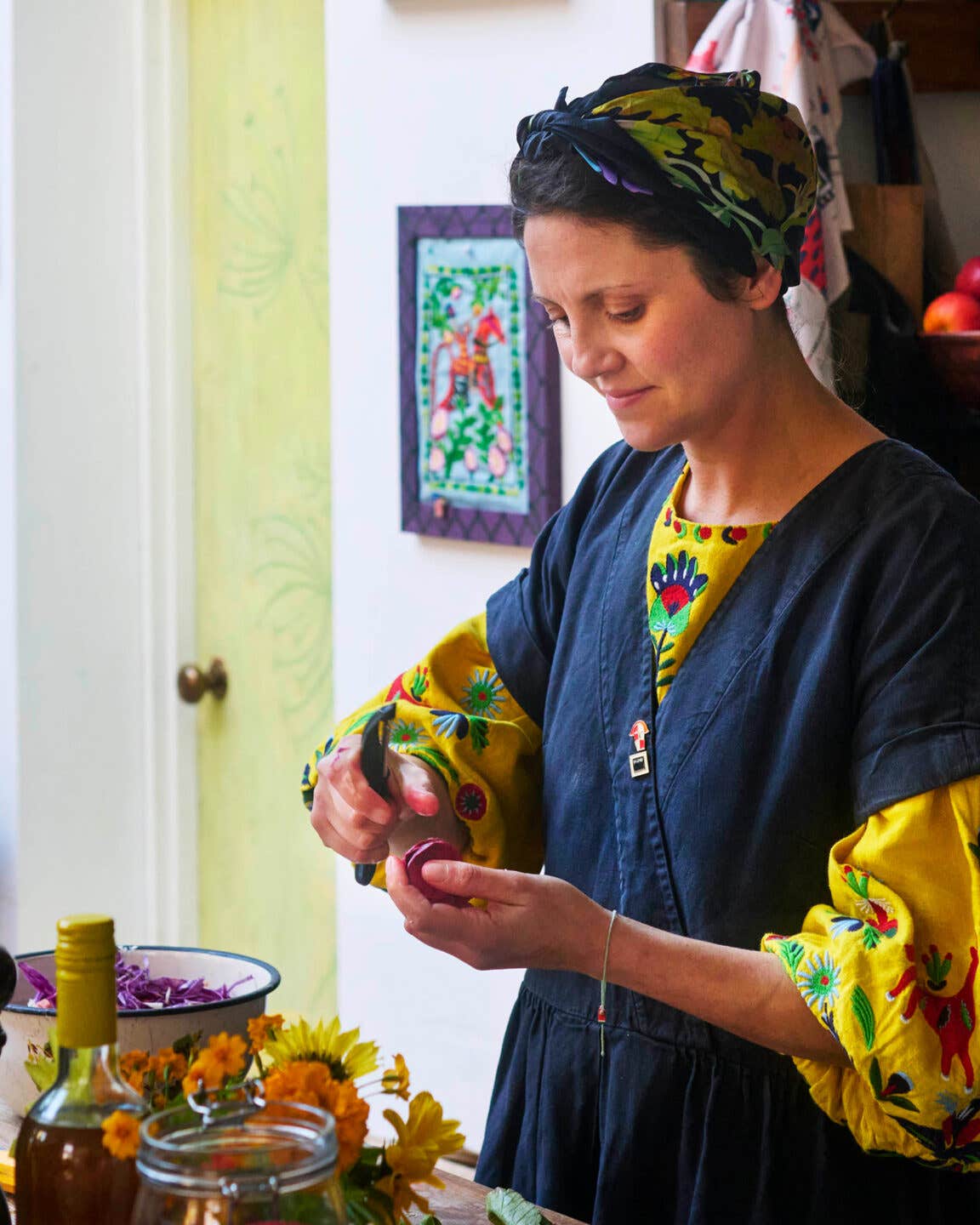Forced to Flee Her Home, This Writer Remembers Her Family Through Recipes
Chantha Nguon recalls the foods of her Cambodian childhood before a brutal war took hold.

“When I’m cooking or eating, it’s less painful to remember,” writes Chantha Nguon in the introduction to her book, Slow Noodles: A Cambodian Memoir of Love, Loss, and Family Recipes. After an idyllic childhood in Battambang—a life of simmering stews and the aroma of rice cooking over a fire—an encroaching war left her with nothing but the memories of her mother’s cooking. In 1970, just before her ninth birthday, her family was forced to flee Cambodia to escape violent persecution at the hands of the Khmer Rouge. The brutal regime would ultimately cause the deaths of an estimated 2 million people—including Nguon’s mother and siblings. The writer would spend more than two decades as a refugee before returning to her homeland. Today, she’s the cofounder of the Stung Treng Women’s Development Center, an NGO that provides education, social services, and living wages to women and their families in rural northeastern Cambodia. —Alex Testere
“When the water rises, the fish eat ants. When the water recedes, the ants eat fish.”
Khmer Proverb
I spent my first nine years in my mother’s kitchen in Battambang, Cambodia. Sometimes I wish I could have stayed there for- ever, helping her chop onions and garlic, running to fetch wood and water, and falling asleep in a hammock as she rocked me to sleep.
My mother—“Mae,” as I called her in Khmer—left me nothing but her songs and recipes, and aromatic memories to last the rest of my life. I was always happiest in that open, airy kitchen. I remember it as being made up of pure light. A large window high in the pale blue walls framed the bright, tropical sky—so much blue that the walls and sky seemed to merge. Sunlight streamed into the doorway, which opened onto a narrow staircase leading down to my father’s ground-floor auto repair shop. A folding table for eight fit into a nook by the door. Municipal water came from a tap in the wall in a cement washing area, where we did dishes and laundry and sometimes showered. My oldest sister, Chanthu, sat on a low stool by a drain in the floor to do the washing chores.

Next to that was a smaller window, a portal for leaning out and chatting with our neighbors—the street-food vendors, laborers, and farmers who lived in wood-stilt huts arranged around a clearing. We always had plenty to eat; many of them did not. So my mother and Chanthu usually prepared extra, then lowered pots of leftovers out the window, by a string tied to the handles, to our closest neighbor family—I called her Oum, or “Auntie,” and her daughter, Srey.
Our soup pot was so huge, I could not wrap my arms all the way around it. Once, after I climbed the shelves of a high cupboard to look for something to eat, I fell backward—right into the pot, where Mae was marinating meat for her famous tamarind stew. She laughed as she helped me climb out, her naughty little daughter marinated in tamarind and stained bright red.
I was five or so when Chanthu finally let me put a pot of water on the wood fire to boil. I was ecstatic! And then, when I was eight, it became my job to pour the hot water into a glass thermos twice a day for my father’s tea. Mae cautioned me never to do this alone. The metal thermos case was cracked, which meant you had to hold on to the bottom to keep the glass thermos inside from falling out and shattering. I don’t know why my mother never replaced the broken case.
Most of my early responsibilities were more related to kitchen main- tenance than food preparation. My mother cooked over wood and charcoal fires, in three big clay braziers on a table topped with gleaming white tile. The cooking fire left pots coated with a stubborn black slag, and it was my job to scour soot from the cooking pots until they shone. Black smoke from the braziers poured out the big window right next to the cooking area and into the sky, but the fire still left its mark—we were always scrubbing the white tile table, kitchen walls, and ceiling.
For my mother, the extra trouble of cooking on a real fire was worth the reward. To her, food prepared on an electric burner tasted like nothing. She loved the richer flavors that wood and charcoal imparted. I feel the same way. But my present-day kitchen is not as open to the sky as hers was, so when I’m inside the house, I cook on a gas burner. And when I have time, I build a charcoal fire on a small clay brazier in my little courtyard and squat over it, boiling bones for soup stock or grilling beef pierced with bamboo skewers. I can even bake bread and pastries on it.
For me, rice simmered over a charcoal fire tastes better than rice from a rice cooker, and the smell of a charcoal fire is the smell of home and family. My favorite kitchen memories are steeped in that aroma. Every day after school, I went straight to the kitchen to shadow Mae and Chanthu while they cooked, begging them to feed me a bite of something tasty. Between meals, there was always some delicious snack to be found: a crunchy, sweet green mango dessert, ice-cold from the thermos, or dried lotus seeds from a tin box high on a shelf. In the rare moments when the kitchen was empty of cooks, I hunted for some tasty morsel to devour on the sly. I’m sure my mother knew which ingredient had gone missing, but she pretended not to notice.

Once, I stole a bite from the bony belly of a big fried fish that was cooling on the counter. To avoid capture, I swallowed it whole, without chew- ing. But my mother and sister found me coughing and made me swallow a thumb-sized bite of rice, our remedy for dislodging a stuck bone. After ten rice-thumbs, the fish bone had not moved, and my throat started to bleed.
Chanthu hailed a remork (a passenger carriage towed by a bicycle or moto) and rushed me to the provincial hospital. I was terrified that she would shout at me for sneaking the fish, but instead she only asked, “How are you?” every minute or so, looking alarmed. At the hospital, I stretched out on a long metal table, where a doctor gently slid long forceps into my throat and extracted the belly bone.
I did not learn my lesson. In most ways, I was an obedient child, but I couldn’t resist plundering any delicacy left unguarded in the kitchen. My nose was always leading me toward temptation and trouble. I have an acute sense of smell—my mother always said so. I can detect a tiny trace of bitterness in a dish brightened with lime; when the juice touches the peel, it carries the bitter taste along with it. That’s why I always peel limes before squeezing them. People tell me they can’t taste any difference. But for me, the lime- peel sharpness can ruin an otherwise perfect dish.
My nose has been a gift and a curse. I was forever poking it into my mother’s kitchen business, inhaling everything and absorbing the nose’s lessons, like the before- and aftertastes of adding charred scallions to simmering pork stock—it softens the more disagreeable aromas of pig fat.
Mae laughed that I was just like a puppy, with my voracious, curious nose. “Puppy” became her pet name for me.
In my defense, I submit that my mother’s fried fish, when left alone in a kitchen, would make a thief of anyone.
Excerpted from Slow Noodles: A Cambodian Memoir of Love, Loss, and Family Recipes by Chantha Nguon. Copyright © 2024. Available from Algonquin Books, an imprint of Workman Publishing, Hachette Book Group, Inc.
Recipe

Keep Reading
Continue to Next Story


